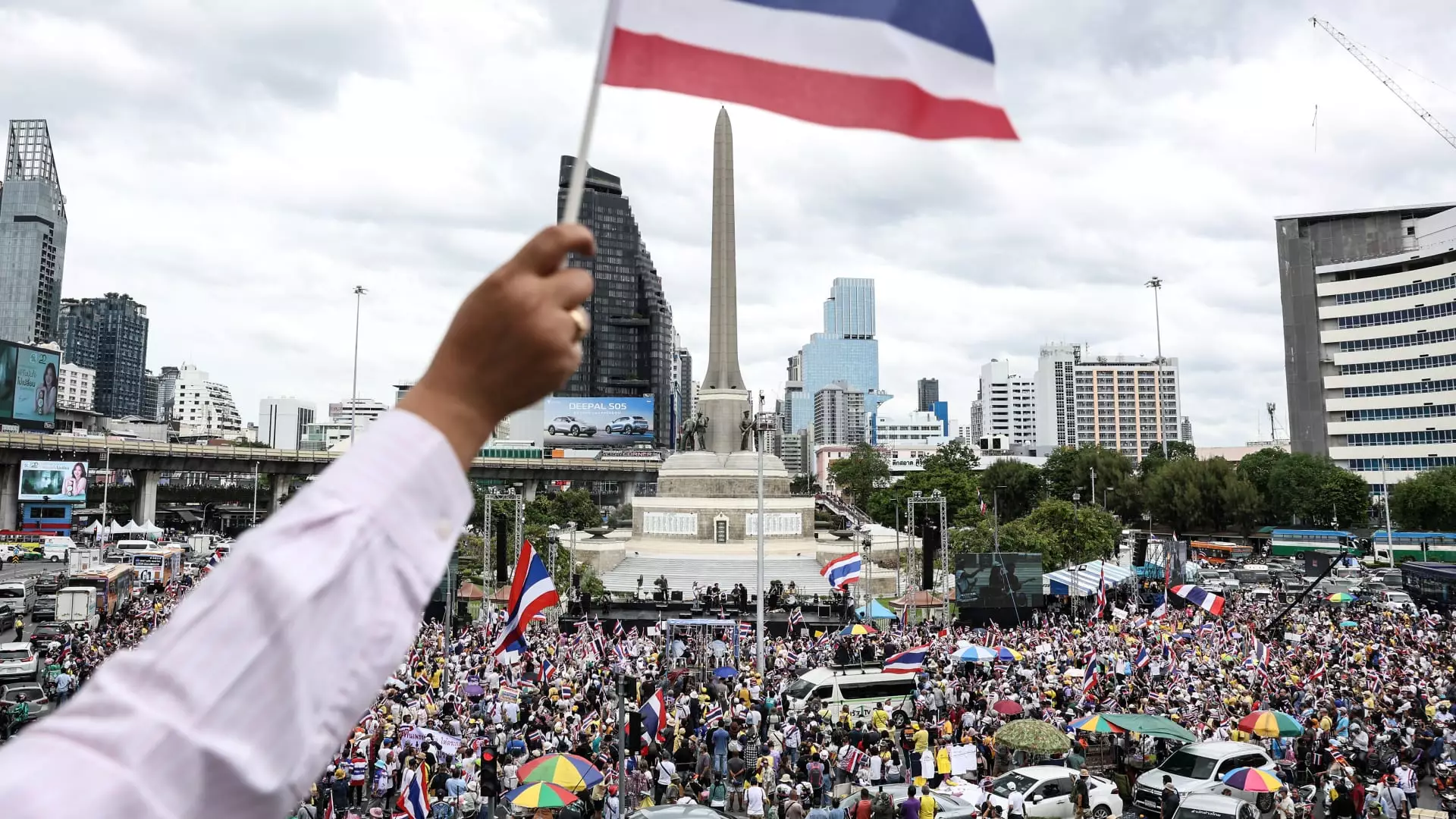Thailand is once again engulfed in political chaos, showcasing how fragile its democratic institutions remain even decades after the Shinawatra family’s influence first took root. The mass protests against Prime Minister Paetongtarn Shinawatra, led by nationalist groups like the United Force of the Land, reflect more than public dissatisfaction—they reveal a ticking time bomb of resentment entwined with nationalism and deep-seated political rivalries. For a leader barely 38 years old, Paetongtarn faces an uphill battle to maintain authority, especially as her coalition crumbles amidst accusations of compromising Thai sovereignty.
Nationalism as a Double-Edged Sword
The growing nationalist fervor that the protesters embody is highly problematic. While patriotism is essential, the extreme and exclusionary nationalism on display risks destabilizing Thailand further. The criticism aims at Paetongtarn’s diplomatic misstep—a leaked phone call where she allegedly appeased Cambodia’s former premier, Hun Sen, and criticized a powerful Thai army commander. In a country where the military has an outsized influence on politics, such perceived betrayal easily becomes a rallying cry for opposition forces. Yet, this wave of nationalism feels opportunistic, fueled less by principled concerns and more by long-standing political vendettas against the Shinawatras.
A Government Under Siege from Multiple Fronts
Paetongtarn’s government is hanging by a thread. The recent defection of the Bhumjaithai Party from her coalition highlights the precariousness of her position and the fragile nature of Thailand’s parliamentary alliances. This political fragmentation isn’t just about personalities—it’s symptomatic of deeper institutional weaknesses. The judicial and military interventions that have historically toppled governments associated with the Shinawatras are ominous shadows looming over Paetongtarn’s administration. The use of a National Anti-Graft Commission investigation and possible Constitutional Court rulings against her evoke a political weaponization of justice that hampers democratic progress.
The Economic Toll of Political Instability
While politicians focus on power struggles, the biggest victims are ordinary Thai citizens facing an economy struggling to recover from global and domestic shocks. Political instability deters investment, disrupts tourism, and prevents coherent policymaking, exacerbating economic woes. Paetongtarn’s efforts to revive the economy are undermined not only by opposition protests but also by her own coalition’s fragility. It is irresponsible for nationalist agitation and political infighting to hinder the pragmatic governance required to steer Thailand’s economy out of turbulence.
Diplomacy in the Era of Social Media and Leaks
The leaked phone call that triggered this crisis is a stark reminder of how modern communication technologies can threaten the delicate balance of diplomacy. Transparency is valuable in a democracy, but such leaks risk undermining Thailand’s strategic regional interests by eroding trust. Both Thailand and Cambodia are entangled in a complex border dispute that demands subtle diplomacy rather than fiery public accusations. The outburst from Hun Sen against Paetongtarn in a lengthy televised speech escalates rhetoric beyond reason, making international diplomacy a casualty of domestic political theater.
A Critical Perspective on Leadership and Democracy
Paetongtarn Shinawatra’s predicament illustrates the dangers of dynastic politics intertwined with militarized nationalism in Southeast Asia. While she deserves criticism for diplomatic naivety, the vehement backlash appears disproportionate, reflecting the entrenched factionalism that has repeatedly derailed Thailand’s democratic journey. The government’s slim majority and the looming no-confidence vote symbolize a political environment where consensus-building is often sacrificed for short-term power plays. Thailand’s next steps should prioritize strengthening democratic institutions and fostering a mature political culture capable of accommodating dissent without destabilizing the nation. Instead, the country remains caught in a vicious cycle of protest, judicial interference, and military influence—hardly a recipe for sustainable governance.



Leave a Reply